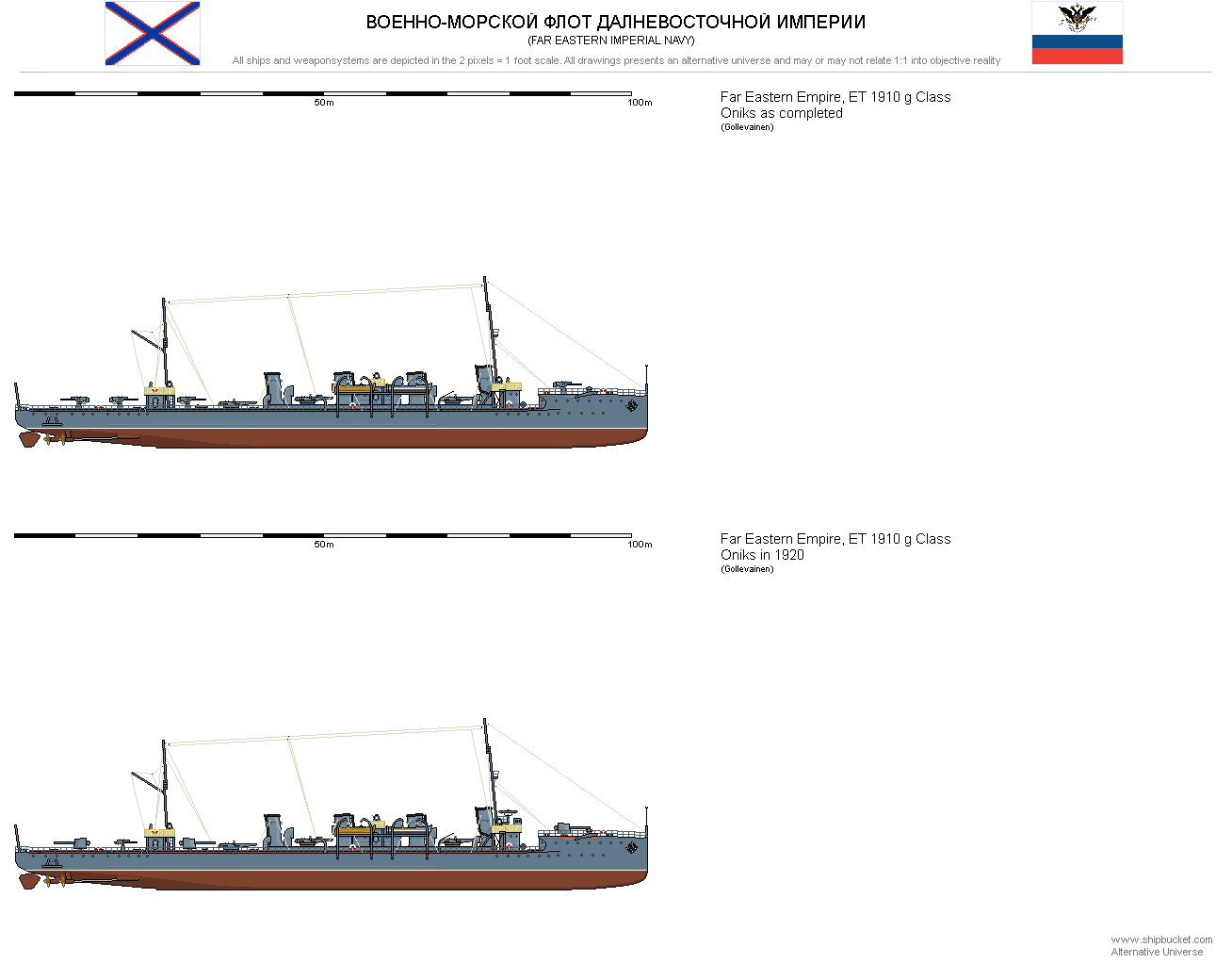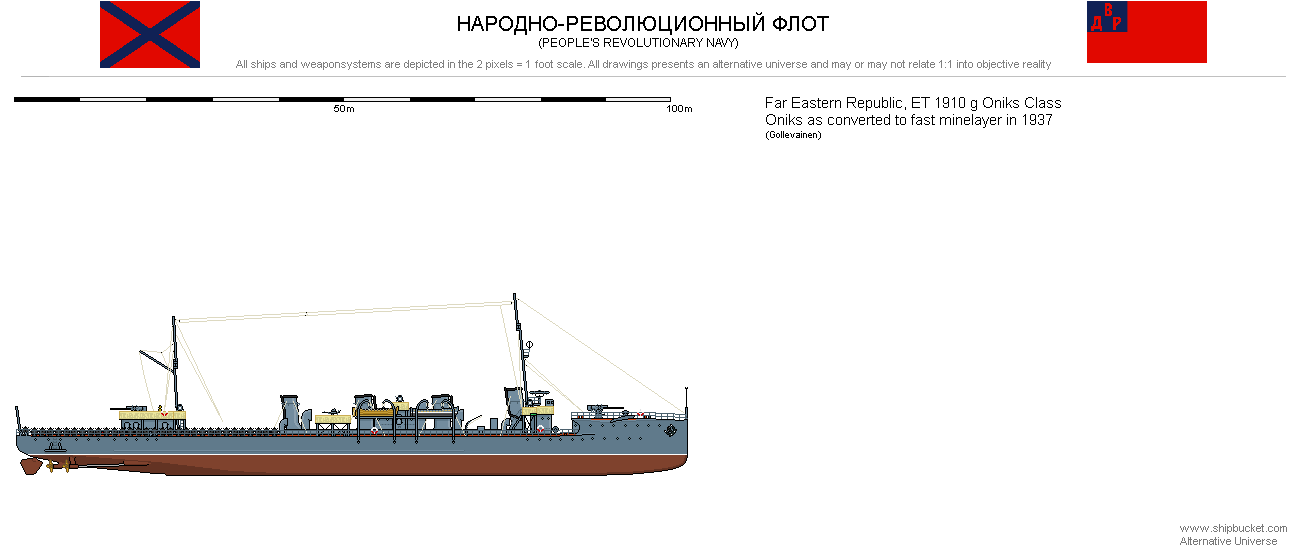Difference between revisions of "ET 1910 g Oniks class destroyer"
| Line 56: | Line 56: | ||
Novaya Verf designed a new and large destroyer which was close to the size of old 2nd class cruisers. It carried 3-shaft machinery which was made by the German AEG-Vulkan company. It featured very german-style short forecastle with distigntive break before the forward superstructure. It carried over twice the armament fit of earlier destroyers. Initially a new 120mm gun was planned for the new destroyer but delays in developing the gun led to adaption of the earlier 102mm/40 guns. 120mm guns were fitted in 1915. | Novaya Verf designed a new and large destroyer which was close to the size of old 2nd class cruisers. It carried 3-shaft machinery which was made by the German AEG-Vulkan company. It featured very german-style short forecastle with distigntive break before the forward superstructure. It carried over twice the armament fit of earlier destroyers. Initially a new 120mm gun was planned for the new destroyer but delays in developing the gun led to adaption of the earlier 102mm/40 guns. 120mm guns were fitted in 1915. | ||
| + | Oniks was converted into fast minelayer in 1937. It served during the early parts of the world war II but was sunk at the 2nd naval battle of Paramushir in October 1942. | ||
| Line 72: | Line 73: | ||
|June 1911 | |June 1911 | ||
|August 1913 | |August 1913 | ||
| − | | | + | |Converted to minelayer in 1937, sunk in 1942 |
|} | |} | ||
Latest revision as of 22:06, 20 December 2020
| ET 1910 g Oniks class Destroyer | |
|---|---|
| Class overview | |
| Name | ET 1910 g Oniks class Destroyer |
| Operators | Far Eastern Imperial Navy |
| Class before | ET 1906 g class destroyer |
| Built | 1 |
| Active | 1 |
| General Characteristics | |
| Type | Destroyer |
| Displacement |
|
| Length | 102.4 metres (336 ft) |
| Beam | 9.5 metres (31 ft) |
| Draught | 3.53 metres (11.6 ft) |
| Propulsion | 3 shafts, 3 AEG-Vulkan Steam turbines |
| Power |
|
| Speed | 37 kts |
| Range | 2000 nm at 21 kts |
| Complement | 142 |
| Armament |
|
Development
After the defeat in Far Eastern - Japanese war, the war experience and lessons were theraly analysed in the "Special committee of readjustment in naval affairs" which was formed after the humiliating defeat in the Tsusima straight. One of the main lessons of the war regarding torpedo ships were, that destroyers were far more versatile than just aggressive torpedo attackers. They performed vast range of different naval missions and thus the new requirement for future destroyers emphasized multipurpose capability. New type of destroyers were to operate in higher speeds and longer range with better sea keeping capabilities. This in return meant that the future destroyers would be considerably larger than the earlier ones. Construction of the earlier ET 1906 g class was too well advanced for these new concepts to be adapted so a new prototype ship was ordered from Novaya Verf to implement these requirements.
Novaya Verf designed a new and large destroyer which was close to the size of old 2nd class cruisers. It carried 3-shaft machinery which was made by the German AEG-Vulkan company. It featured very german-style short forecastle with distigntive break before the forward superstructure. It carried over twice the armament fit of earlier destroyers. Initially a new 120mm gun was planned for the new destroyer but delays in developing the gun led to adaption of the earlier 102mm/40 guns. 120mm guns were fitted in 1915.
Oniks was converted into fast minelayer in 1937. It served during the early parts of the world war II but was sunk at the 2nd naval battle of Paramushir in October 1942.
Ships in class
| Name | Builder | Laid down | Launch Date | Entered Service | Fate |
|---|---|---|---|---|---|
| Oniks | Novaya Verf, Dalny | June 1910 | June 1911 | August 1913 | Converted to minelayer in 1937, sunk in 1942 |
See Also
Ships of Far Eastern Imperial Navy 1920
Ships of Peoples Revolutionary Navy 1920-1945

